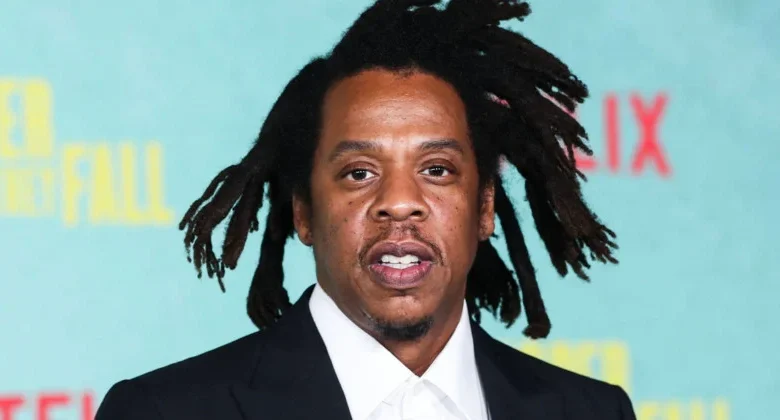
Jay-Z Responds to Allegations of Assaulting 13-Year-Old in 2000 with Diddy
Jay-Z strongly denies allegations of a serious assault from 2000. The rap mogul faces accusations of assaulting a 13-year-old, and the claims also link Sean ‘Diddy’ Combs to the whole ordeal. New York’s Adult Survivors Act made these allegations possible by temporarily lifting the statute of limitations for such cases.
Jay-Z’s legal team responded quickly and called the claims “meritless” and “baseless.” The case has grabbed widespread attention because it connects two of hip-hop’s biggest names. These decades-old allegations raise crucial questions about accountability and legal jurisdiction.
Breaking Down the Allegations
A 13-year-old girl’s encounter with a limousine driver claiming to work for Combs led to serious allegations detailed in an amended lawsuit filed in the Southern District of New York. The lawsuit stems from events that occurred at an MTV Video Music Awards afterparty in 2000. Court documents reveal that the driver approached the girl who didn’t have a VMA ticket.
The plaintiff arrived at a house party where she had to sign what appeared to be a non-disclosure agreement. She accepted a drink and reported feeling “woozy and lightheaded” afterward. Court documents describe the venue as “a white house with a U-shaped driveway” where other attendees allegedly used recreational drugs. An unidentified female celebrity reportedly witnessed the events.
The victim managed to reach a nearby gas station and contact her father after the whole ordeal. The plaintiff’s legal team filed the case under New York’s Victims of Gender-Motivated Violence Protection Act and seeks unspecified damages. Attorney Tony Buzbee represents the plaintiff and has filed at least 20 civil lawsuits related to sexual misconduct allegations.
Jay-Z’s Strong Response
Shawn “Jay-Z” Carter fired back at allegations through Roc Nation’s social media platforms with a powerful statement that called out what he labeled a “blackmail attempt”. The rapper tackled the situation head-on and responded to attorney Tony Buzbee’s “demand letter.” Public scrutiny made him more determined to fight these accusations, not less.
“What he had calculated was the nature of these allegations and the public scrutiny would make me want to settle,” Carter stated firmly, adding “No sir, it had the opposite effect!”. The rapper questioned why these claims weren’t taken to criminal court:
- Called for criminal rather than civil proceedings
- Demanded accountability for serious allegations
- Refused to think about settlement options
- Challenged the credibility of the legal approach
Carter’s Brooklyn roots came through as he stated, “I’m not from your world. I’m a young man who made it out of the project of Brooklyn. We don’t play these types of games. We have very strict codes and honor”.
His family’s wellbeing emerged as his deepest concern. Carter worried about explaining these allegations to his children, especially since his daughter’s friends might see news coverage about the situation. “My only heartbreak is for my family,” he shared, expressing his pain at having to discuss such serious accusations with his children.
Buzbee countered Carter’s statements by saying his client just needed a “confidential mediation” rather than payment. Carter’s response made his client even more determined to pursue the case, the attorney claimed.
Legal Implications
A complex legal battle with major implications emerged from what started as a civil complaint in the Southern District of New York. The lawsuit first targeted Combs alone but now Carter joins as a co-defendant. This case stands out because it’s the first time another high-profile defendant appears among more than 30 complaints against Combs.
Several key developments shaped the legal proceedings:
- The plaintiff’s lawyers tried mediation before they filed the amended complaint
- Carter struck back with what the complaint calls a “frivolous” lawsuit
- Attorney Tony Buzbee brought at least 20 civil lawsuits against Combs over sexual misconduct claims
- New York’s Victims of Gender-Motivated Violence Protection Act serves as the legal basis for this case
The situation grows more complicated as Combs faces other legal challenges. He sits in a Brooklyn detention center without bail while he waits for his May 5 trial on federal charges of sex trafficking and racketeering conspiracy. Federal prosecutors hint at possible new charges through a superseding indictment.
Legal tensions escalated between the attorneys themselves. Buzbee sued law firm Quinn Emanuel Urquhart & Sullivan, which represents both Combs and Carter. His lawsuit claims the firm harassed his colleagues, clients, and family members. This new legal fight adds another layer of complexity to the already intricate proceedings.
The case brings to light the most important challenges where celebrity status, legal accountability, and historical allegations intersect. Jay-Z’s strong denial and unwillingness to settle shows a clear departure from how celebrities usually respond in such situations. The case stands out from regular civil litigation due to his public position and complex legal proceedings with multiple defendants and attorneys.
Legal experts monitor the case as it redefines the limits of New York’s Victims of Gender-Motivated Violence Protection Act. There’s another reason why this case matters – the parallel proceedings against Sean ‘Diddy’ Combs could shape how similar cases unfold in the entertainment industry.
This case might alter the map for handling historical allegations against public figures in the legal system. The courts will determine the truth, but this case shows how accountability has evolved in the entertainment industry. Legislative changes now allow decades-old allegations to emerge and affect everyone involved.






